In Love & War: A Conversation Between Waxahatchee & Marlee Grace
Katie Crutchfield of Waxahatchee opens up to best friend and collaborator Marlee Grace about getting sober and writing her most powerful album to date.
Back in 2010, Katie Crutchfield established one of the most formative relationships in her life at a bowling alley in Grand Rapids, MI. While on tour with P.S. Eliot, her old punk band prior to Waxahatchee, she decided to bowl with friends on a rare day off. “A Salt-N-Pepa song came on, and this woman across the room started to sing every single word and do quite a dance,” says Crutchfield. “I just remember thinking, ‘That person is my soulmate.’”
“The person was me,” says Marlee Grace, a dancer, creative advisor, and author of the books, A Sacred Shift and How To Not Always Be Working.
The two artists formed a friendship despite the geographical distance between them—in fact, Grace would book Waxahatchee shows in Grand Rapids, and had become sober shortly after their initial meeting. “We were babies, and I didn’t really know anyone who was sober,” says Crutchfield. “When you’re that age, it’s really easy to fall into problematic drinking without anyone looking at it critically.”
As the years passed, the two women came into their own, both individually and mutually. Crutchfield released four critically-acclaimed albums and toured the world, all while struggling to maintain within the drinking culture of the music industry; Grace went through a divorce, released two books, and became a dance sensation; and together they formed a friendship and collaboration brimming with love and unequivocal opulence. “So much of our friendship is rooted in generosity,” says Grace. “We don’t ask questions—you need me, I’ll be there.”
When Crutchfield fully embraced sobriety in 2018, Grace was a pillar to her process—especially when it came to writing Saint Cloud. (She’s embedded into the foundation of the album: dancing in the “Lilacs” music video, name-checked in “Witches,” and honored in “War.”) Waxahatchee’s most powerful and brilliantly arranged album to date, released last week by Merge Records, is a lucid journey through sobriety and codependency, the story of finding and embracing oneself through internal struggle. Saint Cloud closely holds the slower, softer moments of Crutchfield’s Southern upbringing, and is filled with hope and resilience.
Crutchfield and Grace sat down to talk about finding sobriety, the meaning of success, and Saint Cloud.
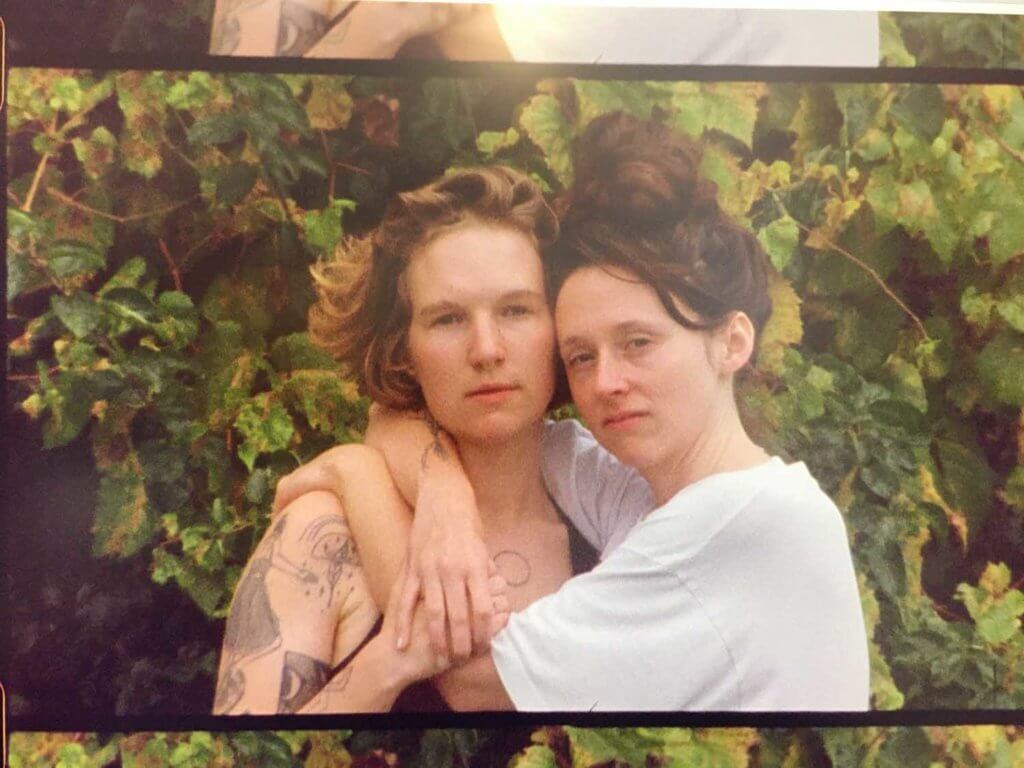
In this Rolling Stone interview, you mention a diary entry…
Full disclosure: it was a LiveJournal entry. (Laughs.)
It was about being 17 and already being like, “I think I need to quit drinking.” You got sober in June 2018, so I’d love for you to tell me a little bit about what the process was like leading up to it.
When I look back on all of it, it was an internal dialogue going on for many, many years. I have a memory of a really crazy night in Grand Rapids. I was supposed to go to breakfast with you and your parents the next morning and I didn’t. I felt so bad and remember being so disappointed in myself because my sweet, sober friend Marlee, who had her shit together, had to deal with my hungover ass.
And you know, I’m a Capricorn. I’m pretty on top of my shit and take pride in that, and so drinking and all of the hurdles it would present were directly in opposition with how I wanted to present in my life. I was in constant conflict. And for a long time, that conflict created a lot for me to write about. But toward the end of my drinking, that whole last year, I couldn’t go as hard as I once had gone. Anytime I would have a bender, I would just be like, “I must quit. I can not do this anymore.”
And then in March 2017, I was sober that whole month and went on tour with my now partner Kevin Morby and had this transformative experience. I had never toured sober before, and it felt really great. I was making all these new friends, I had a new record coming out, but I ended up slipping back into drinking. And just through a slip here, a slip there, a really bad night, a really bad hangover, an emotionally charged argument—all of that coupled with the constant touring I was doing, I don’t know. It led me to slowly reach the point where I felt like I couldn’t do it anymore.
Something that was similar for both of us was that we didn’t necessarily drink in the morning, we didn’t lose everything, we didn’t crash cars, we didn’t go to rehab, we didn’t, like…
Burn our entire lives down.
Yes. But we both were like, “This isn’t working.” And a lot of people who struggle with drinking, myself included, think, “I’m not as bad as these other people who have gotten sober.” I’m curious to know what some of the light bulbs were for you.
I did try to categorize it that way, like, “Oh, I drank an entire bottle of wine last night, but I don’t do that every day.” I would negotiate with myself constantly. I could argue with myself about what’s bad and what’s normal all day long and for the rest of my life, but I finally had to be honest about the fact that I didn’t feel good—physically, mentally, or emotionally. In order to actually heal, to actually feel as good as I possibly could, the first thing I needed to do was quit drinking. I realized I can’t actually feel at peace if I’m continuing to wrestle with this question of, “Am I drinking too much?”
Saint Cloud is the first record you’ve made in sobriety, and it took longer than previous albums. And for me, it’s been almost nine years, so with my creative practice I forget that initial feeling, but I remember being really afraid. Talk to me about how it was different, how it was harder, how it was easier… What was it like to do this big, creative process while sober?
I have to say, you were such a big part of that. Once you got sober, you started to take over the world. I have this beautiful memory of us sitting at the kitchen table at your old cabin in Point Reyes, and you were creative advising me and said, “You’re doing great, you’re right on time,” because I was putting so much pressure on myself.
With musicians, the trope of the tortured artist was something I was really wrestling with for Saint Cloud. I was trying to prove to myself that I can be sober and happy and do a lot of work on myself outside of music and identifying as a musician, because so much of my feeling in the past had been through writing and making stuff—that was the vehicle for me to heal. I was really trying to prove to myself that I could make my best album yet in a healthy state of mind, because that’s such a thing, that you have to be a mess in order to have anything cool to write about.

You used the word “tortured” and I always joke that I don’t need a drink in my hand to be tortured. There’s the saying, “I don’t have a drinking problem, I have a thinking problem,” and a couple of songs on Saint Cloud address our minds, like “War.” I’d love for you to talk about those songs and how they relate to your sobriety.
“War” and “Hell” and a few others are about codependency, which was something I was forced to face right before I was getting sober, all throughout my early days in sobriety, and constantly still to this day. I really wanted to give a little snapshot of what’s going on inside the brain of a newly sober person. You really don’t recognize yourself, and you’re grappling with so much. All of the problems that led you to drink are still there and, in fact, they are highlighted. I wanted to convey the bouncing off the walls that you feel, how you’re pointing a finger at everybody. You’re literally trying to start a war with every single person in your life, but the person you’re actually in a war in is yourself.
So, the question now is how do we do it? How do we stay sober and face the demons inside of us? I’d love to hear more about the spiritual and self-care practice—including 12-steps—that you integrate into your life when you have so much going on both in your career and personally.
All of the 12-step work that we do, in the immediate aftermath of me getting sober, was the stuff I really had to click into in order to survive. That was one of the reasons I took such a long break from music; I needed to get my brain right. With 12-step work, there is a community of people who understand what you’re going through. And therapy has always been big for me, too. Those two things married together.
Following getting sober, there were all kinds of things I was doing for myself that I wasn’t doing before. Exercise, hitting the sauna, drinking green juice, eating better, drinking more water—things that feel good for my body. When I was drinking all the time, I didn’t care. I just needed to get on stage and do my thing, and then get wasted, be hungover the next day, and do it all over again. Now I take so much more pride in performing.
This brings me to success—something I’ve been thinking about since I’m putting out a second book this fall, and what my measures of success are. I know that you have some barometers of growth, but I’m wondering what inner success feels like to you, and what does that look like separately from money and accolades?
One thing I did in my time off that was so necessary—there was no way I could continue without doing this—was to get my mind straight about what success was going to look like for me. It became really clear that in this age of distraction and constantly being hit with a million new things, it’s really hard to be an artist putting something out that you’ve spent so much time on, and have it only mean something to someone for 24 hours and then it’s out of the conversation. It was important for me to shift to a state of mind in which I don’t measure my success to other people’s reactions. And that’s not an easy thing to do, but it’s something I work on every day. I don’t use Instagram anymore, I have someone else run that, and that’s been huge for me. I just try to let my success be measured by my own creative fulfillment. That’s all I’ve ever really wanted.
So, I tried to let the process of making Saint Cloud be exactly what I wanted it to be. I put so much time and thought into the songs, who I worked with, where we worked. I really took the time to decide exactly the kind of record I wanted to make—I can start over, I can do anything I want—and Saint Cloud is the end result of that. I just feel so confident in it and excited with what I made. If people buy it, if people come see it, if people write nice things about it… that’s cool and feels good. But I’m trying really hard to let myself live with the success of making my dream album.
You took a pretty long break from big tours and, like you said, logging off and not having that external validation. But success, for me, does have something to do with how people feel about my work. For example, we made the music for “Lilacs” together, and someone sent me an email that said our friendship and sobriety is so inspiring to them, and so many people messaged me to say that they want to dance now. That, to me, is the success. And that actually helps me when people hate the shit I make.
I think it’s good not to internalize either side of it. With Saint Cloud, and since announcing it, I haven’t been on Instagram in six months and I really don’t look at stuff—I mean, I’ll look at an article occasionally if it’s written by someone cool, but for the most part I don’t look at any of it. It’s been a big experiment for me, because in the past I was in the mix.
I feel so even, so normal now. There was an energetic shift, and it feels so positive, but I have stayed so clearheaded. It’s allowed me to do all the work I need to do, like getting ready for tour and interviews, and also having space to take care of myself. I don’t want to preach to people about what they need to do or not do, or cast judgement for hustling, because a lot of people need to do that and don’t have the ability to have someone run their Instagram. You just gotta do what you gotta do. I’ve talked to a lot of my friends who are in that position, who don’t have management or people who can help them, but there are ways you can just…
Post and ghost.
Post and ghost! I think that is a good way to not internalize some of this stuff. Because at certain levels of success, it’s easy to compare yourself to people who are getting opportunities that you’re not, and immediately be super down on all of the cool things you are getting to do.
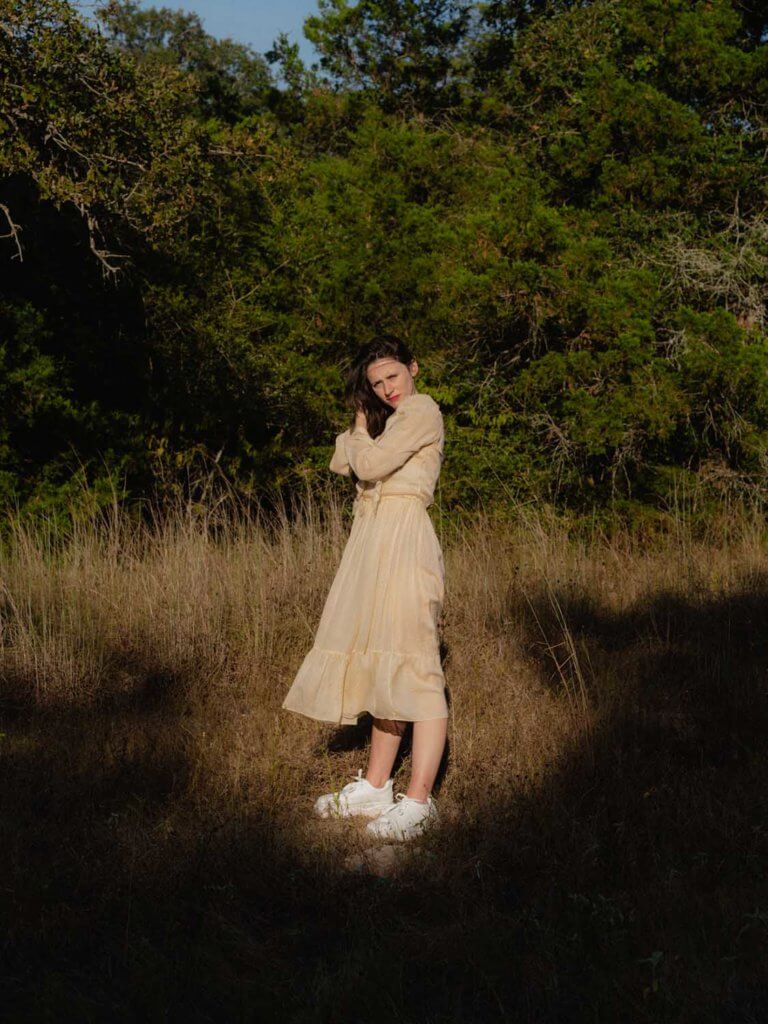
Let’s talk about drinking culture on tour. First, I’d like to share a specific example… I have a project called Personal Practice where I film myself making dance videos, and the first one I ever did was a Waxahatchee song in 2015. We then made a couple of fun videos together on my Instagram feed, and then in 2018 we went on tour together.
It was my second tour sober, which was still huge.
It was also my first time having an NA (non-alcoholic) beer, because at that point, almost eight years of not drinking, I hadn’t had one. So you, a lover of NA beer—well, I decided to have one. I performed, and I was also doing merch, and I was walking around the venue with my NA beer feeling so proud, I’ve got my Carhartt coat on that I just thrifted, I’m feeling calm, I’m feeling confident… and then I hear the staff, who doesn’t see me, literally start making fun of me, like, “Why’s she walking around thinking she’s cool with her NA beer?” I was just devastated…
You walked outside like a little kid. (Laughs.) We were all so mad, and like, stanced about it.
It triggered some inner child thing where I could not believe I was being made fun of. So then I’m packing up the merch, trying not to make eye contact, sippin’ my NA beer…
This is one of my favorite moments of all time…
And the promoter finally says to me, trying to stay light, “What’s the deal with the NA beer?” And I was like, “Well, I’m an alcoholic and a drug addict and I can’t have regular beer.” And she just was like so sorry, and I of course felt a little bad…
It was literally perfect the way that you handled it.
It just reminds me that drinking is so normal. As much as it’s light to me in a lot of ways, I’m very clear that drinking is dying to me—there’s no middle ground for me. And so when someone asks something like that, or is making fun of that, I just wish there was more awareness around the severity of alcoholism and people’s choice not to drink.
Which, long story, leads me to asking you—what has it been like to tour and play shows that are surrounded by alcohol? How do you navigate the world of touring that is so heavily based on drinking?
It’s such a complicated thing. I blame it on why I continued to drink for so long. You’re conjuring someone’s night out, and I’m the ringleader. And venues, that’s how they make serious money.
I don’t feel triggered anymore. The choice not to drink has become very easy for me. I don’t know that I would immediately die if I started drinking again—my bottom is pretty high—but I think it’s a life that I wouldn’t want to go back to. The benefits of it have been so obvious for me, so quickly, that it’s easy for me to wake up every day and not drink.
I definitely feel like I struggle with being judgmental of people who do choose to drink. That’s something I try really hard not to feel, but it’s hard because it’s part of my job to be in that environment, surrounded by it. I don’t have any answers; it’s just the world that we live in.
Alcohol is a heckler’s best friend, and I’ve seen bands perform where they literally ignore everyone the whole time, and then I’ve seen you sing and not miss a beat and glare at them. I’ve also been with you when a man said something and you choose to not come back out for an encore. When you’re on stage, creating your world, how do you set the boundary of your performance and also protect and honor yourself when something that happens in the audience affects you on stage?
There’s a lot of mental gymnastics in those moments. I always want to have the Dolly Parton energy, where I’m funnier and more powerful than that person. I want to find a way to address it without taking all the air out of the room, and that’s hard.
In those moments, that’s my time. To be on stage, to have the mic, to say what I’m gonna say and sing what I’m gonna sing… and when people take that away from me or anybody, it’s really frustrating. I’ve reacted in every possible way: yelled at people, called security, ignored it. Many times I’ve tried to make a joke and embarrass the person enough to get them to be quiet—that’s all Dolly, gotta do the Dolly thing.
Speaking of Dolly, I want to talk about the artists that influence us. You chose a few and made a picture alter when making Saint Cloud, and a shared inspiration to both of us is SZA. Her music really influenced the writing of my next book, her ability to put into words this perfect duality of so much self-confidence and self-deprecation at the same time. So many examples of artists are one or the other, so I’d love to hear more about what artists influenced Saint Cloud.
SZA is so great because her style of lyricism is so singular. She has found this way to perfectly communicate this stream of consciousness that’s happening in her head, and make it so relatable. It’s super powerful to me. I think with Saint Cloud I was trying to toe the line between… Well, I have a natural confidence as a 31-year-old sober person who’s doing the damn thing, but a lot of the record is very self-critical and looking inward.
But if we’re going to talk about the alter, then the other two people were Lucinda Williams, who I think is the most obvious influence on the album, and another really big one for me is Fiona Apple, who walks the line of full-blown confidence and self-criticism. Fiona is the queen of that—maybe she invented it, I don’t know. (Laughs.)
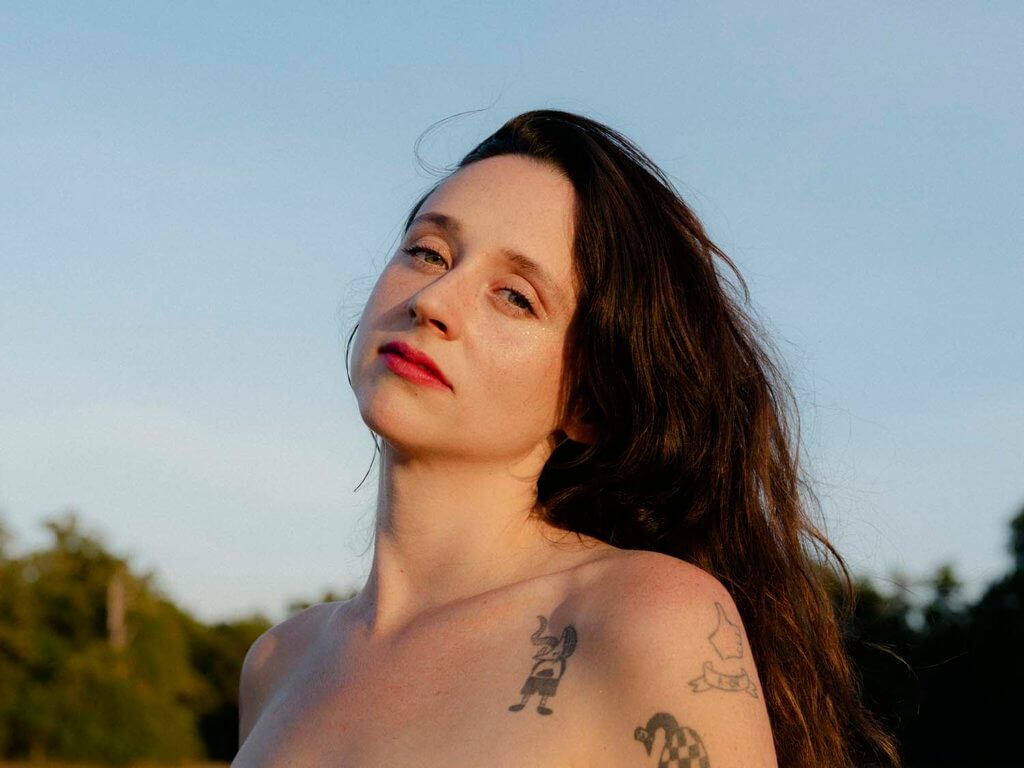
That brings me to another question about how we talk to ourselves. We both share this dedication to self-reflection and self-help, and then sometimes another part of our friendship is we both tend to throw a little rope down to pull each other out of too much of that. And so, I’ve been thinking a lot about self-abandonment lately. What are some practices to help ease the loud voices of Katie’s mind?
Honestly, I’ve really leaned into my close friendships. In those moments of true self-criticism blackholes, that’s when I pick up the phone to bring myself back. But what got me to that place—because for so long I would get so easily worked up and would not be able to calm myself down—was 12-step work. Having that foundation and the tools that come with that has helped me so much to get back to an even place.
Okay, so my next question is… do you believe in god?
(Laughter.)
But seriously. We talk a lot about god—lowercase ‘g,’ no gender—and our higher power, our belief in the universe, which is very much influenced by the 12-steps. I’d love to hear about your relationship with spirituality.
I grew up in a really relaxed but Christian house. My parents never forced that on us, we never went to church… but I grew up in the thickest part of the Bible belt, so it was everywhere. As a teen into my early 20s, I was super agnostic in an almost nihilistic way, just from being a punk rocker. Now my interpretation of god and what that means to me changes all the time. But my favorite interpretation, the one I always come back to, is that god is just unconditional love. If that can be your higher power, the idea of unconditional love… that, to me, is literally always the answer.
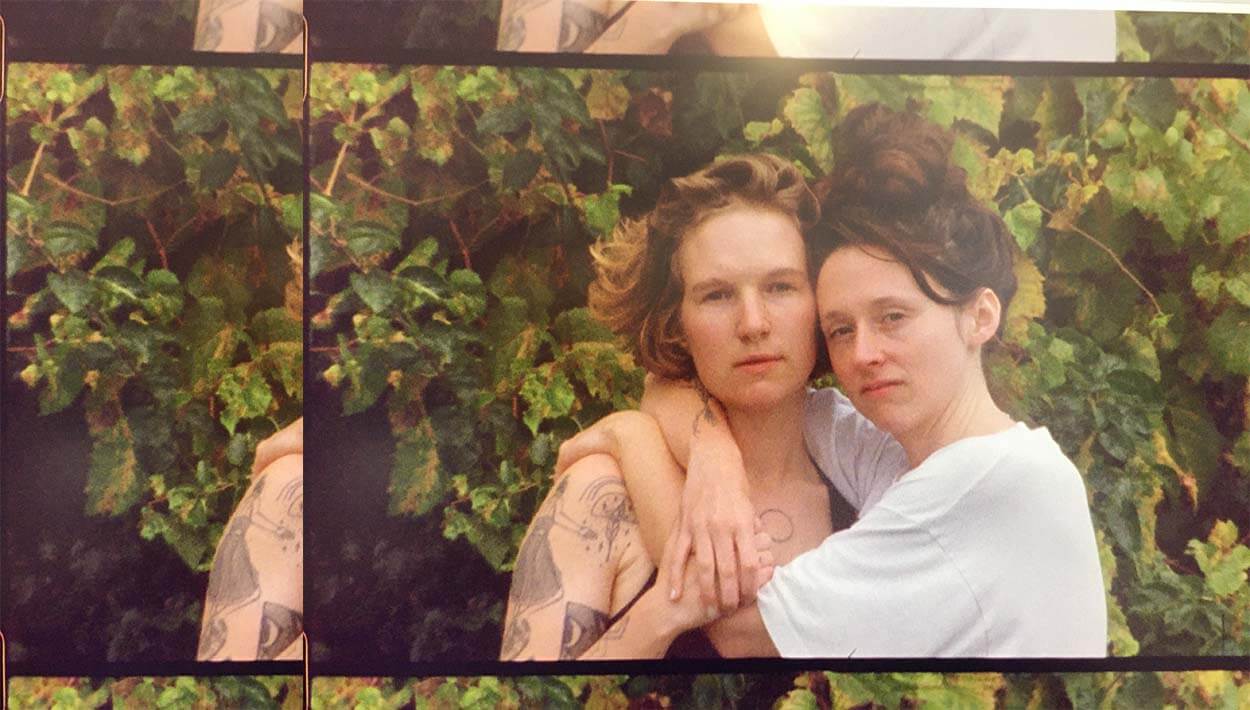

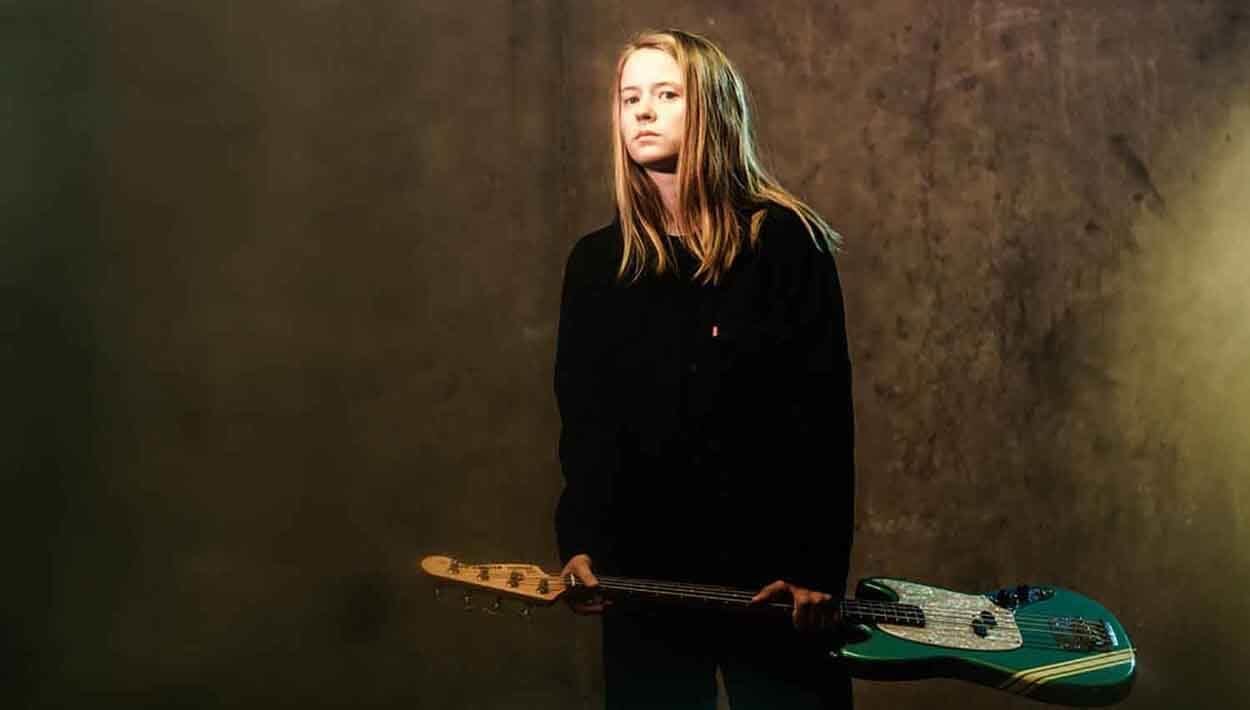
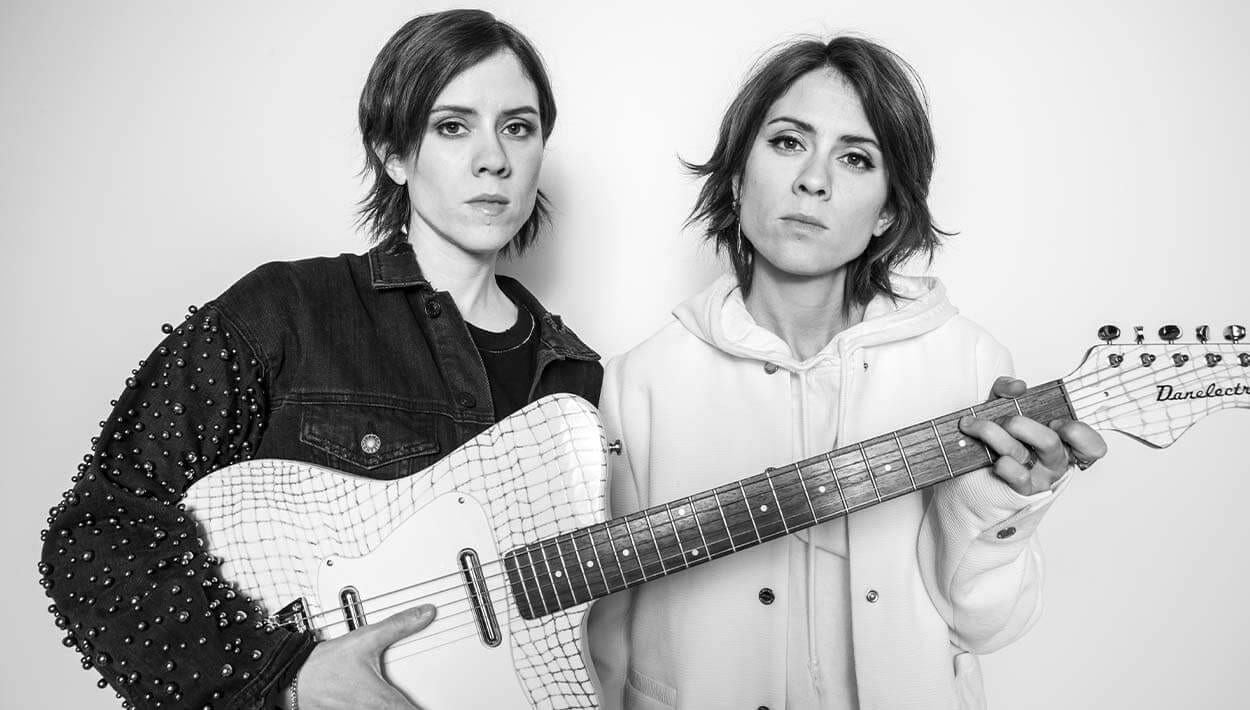
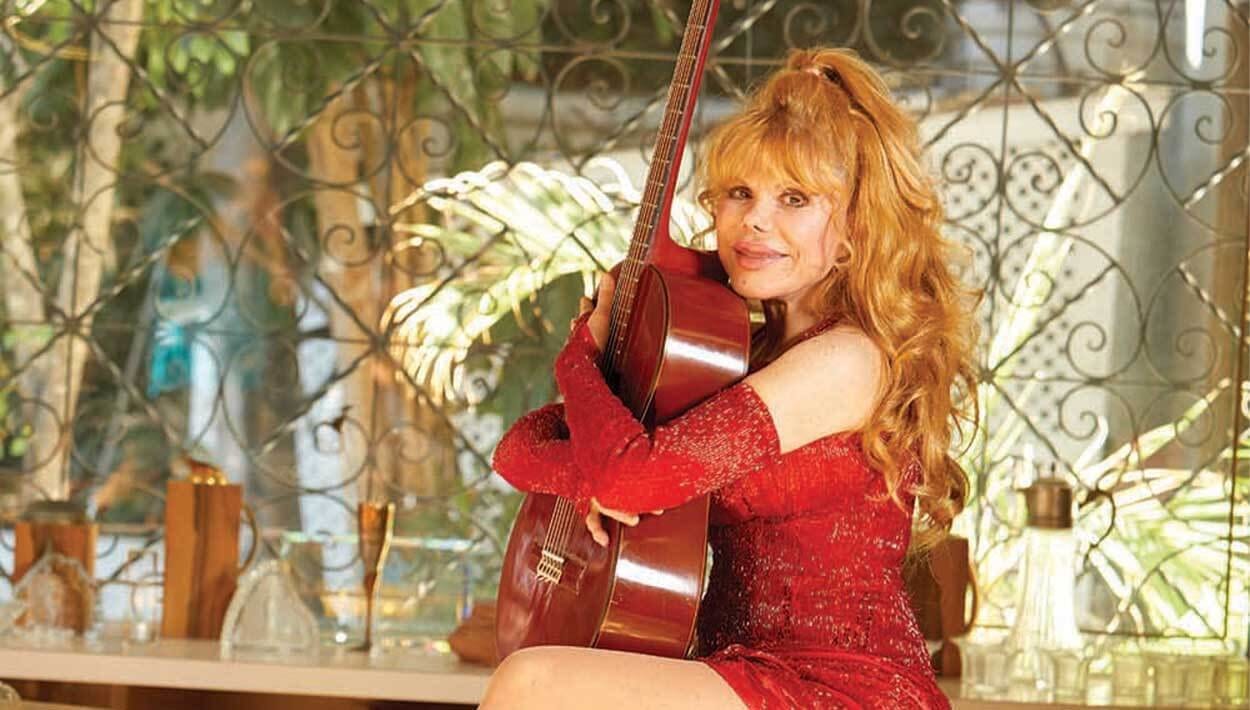
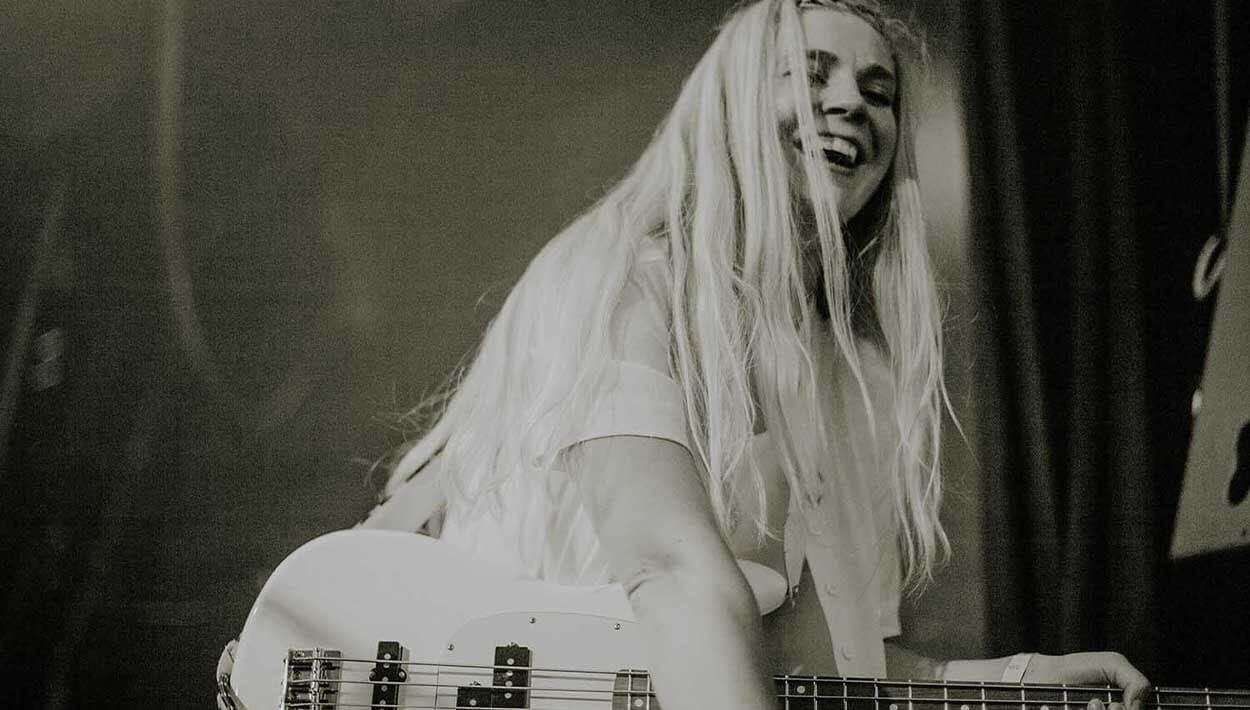
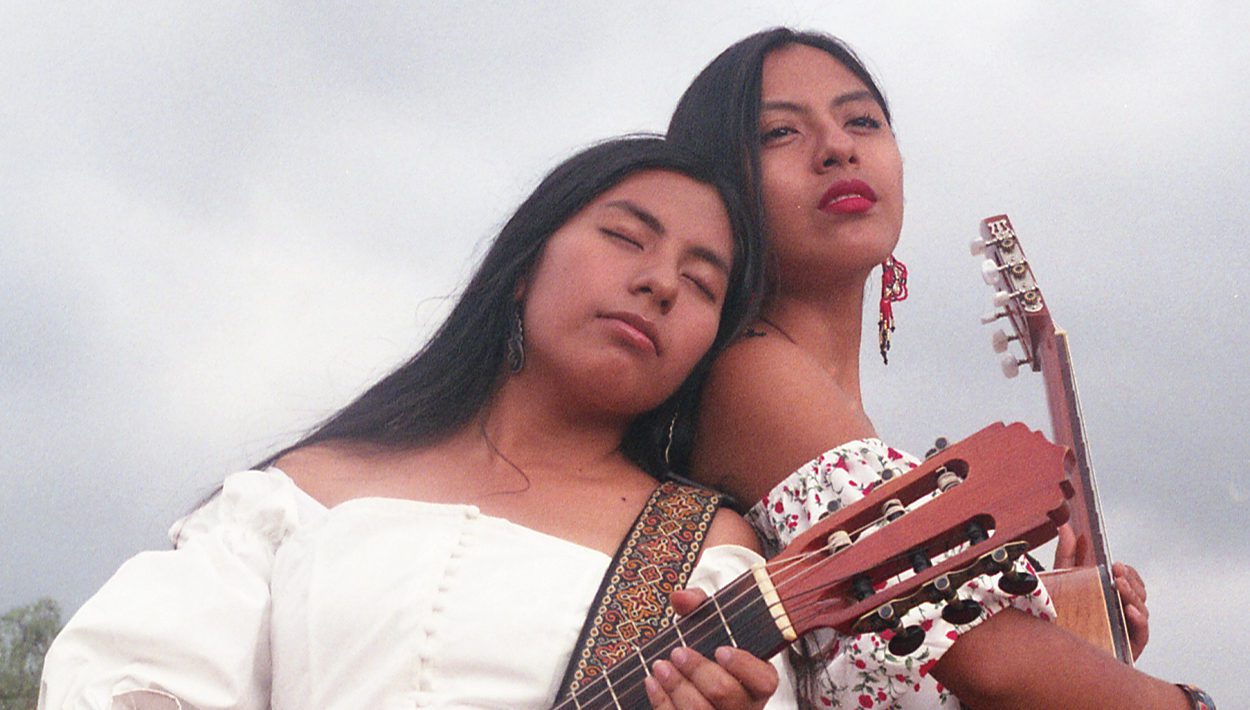
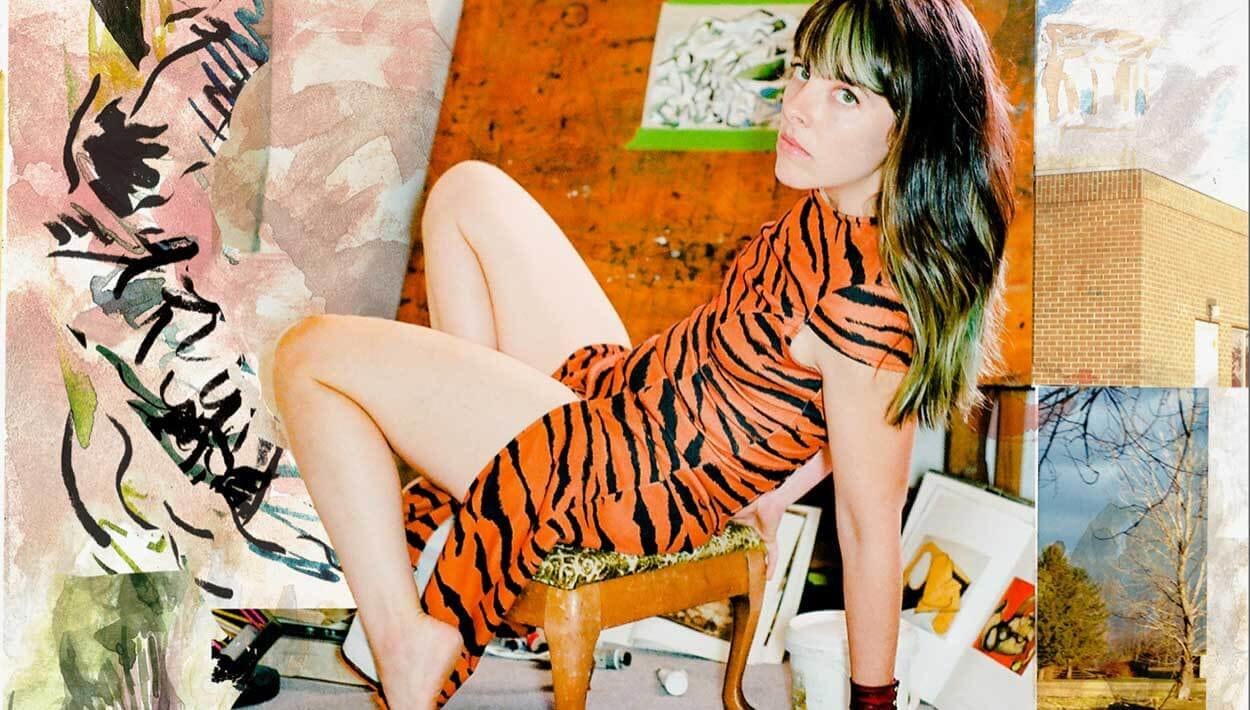
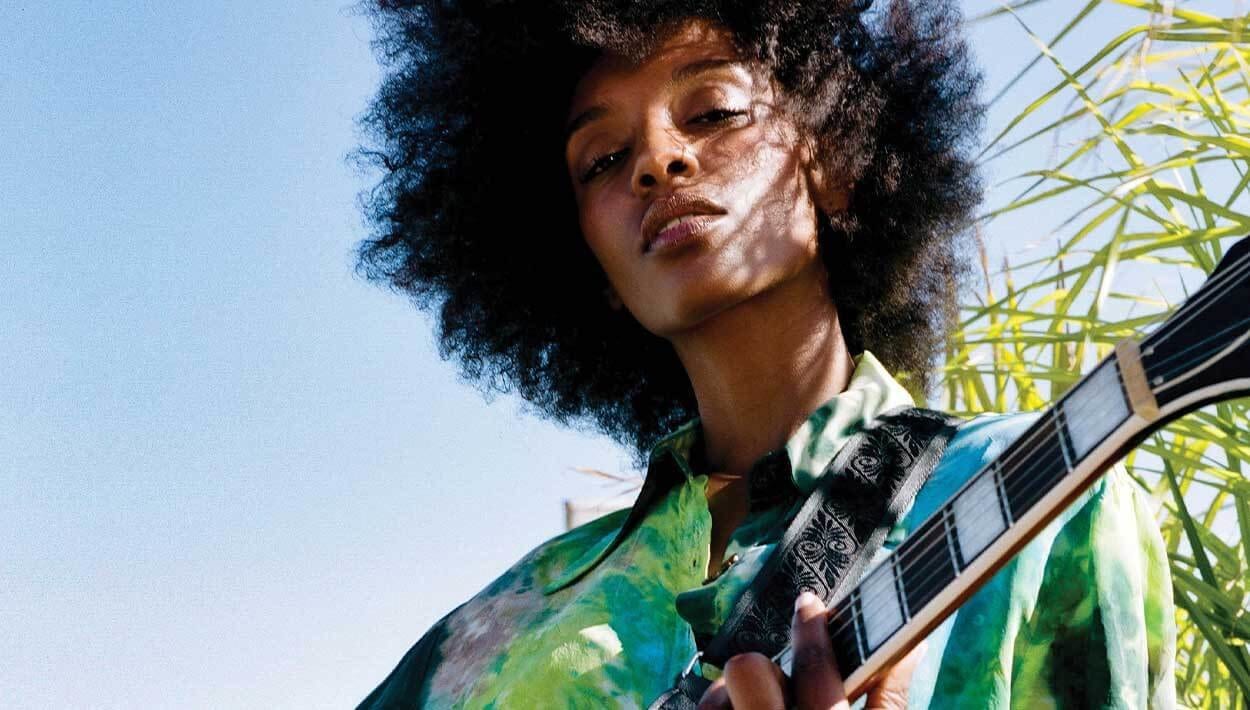
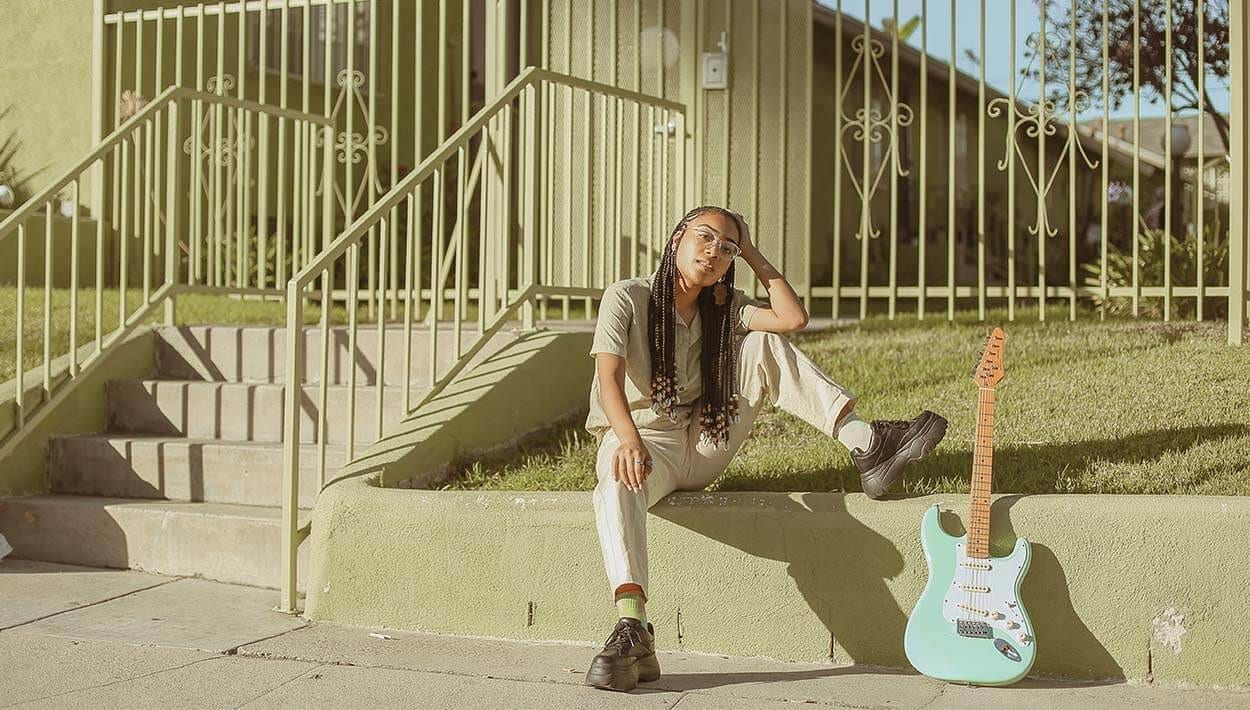
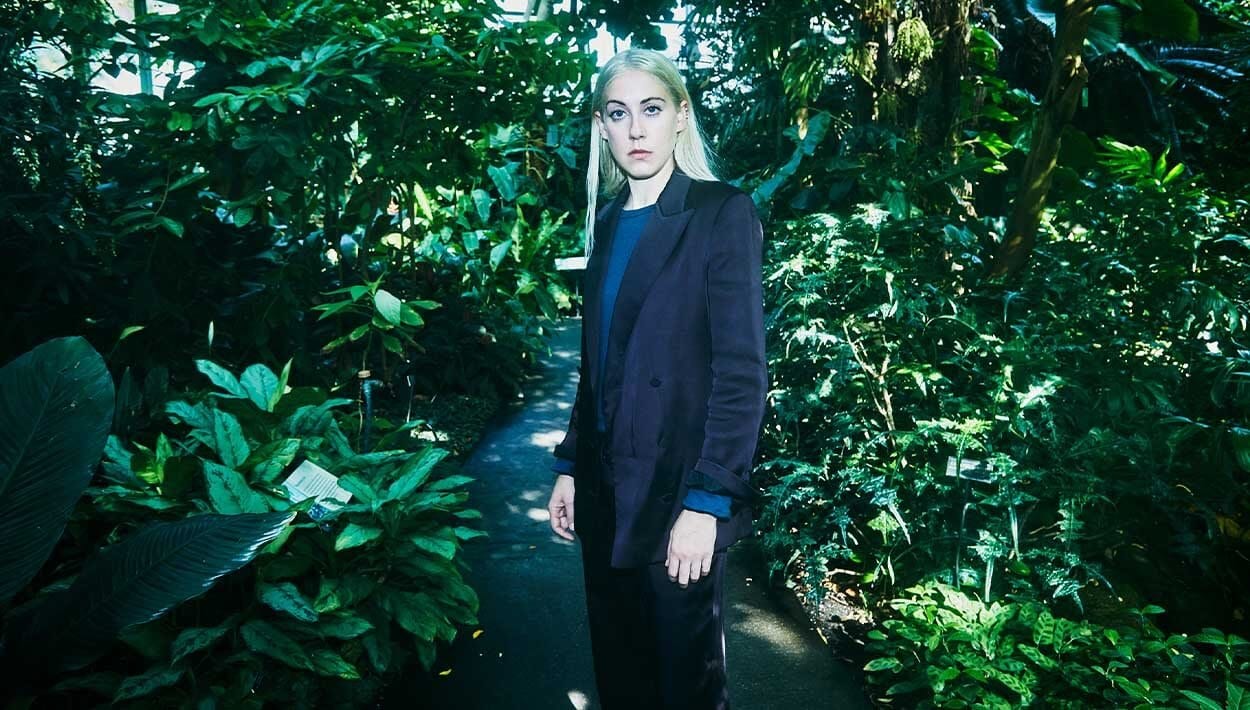
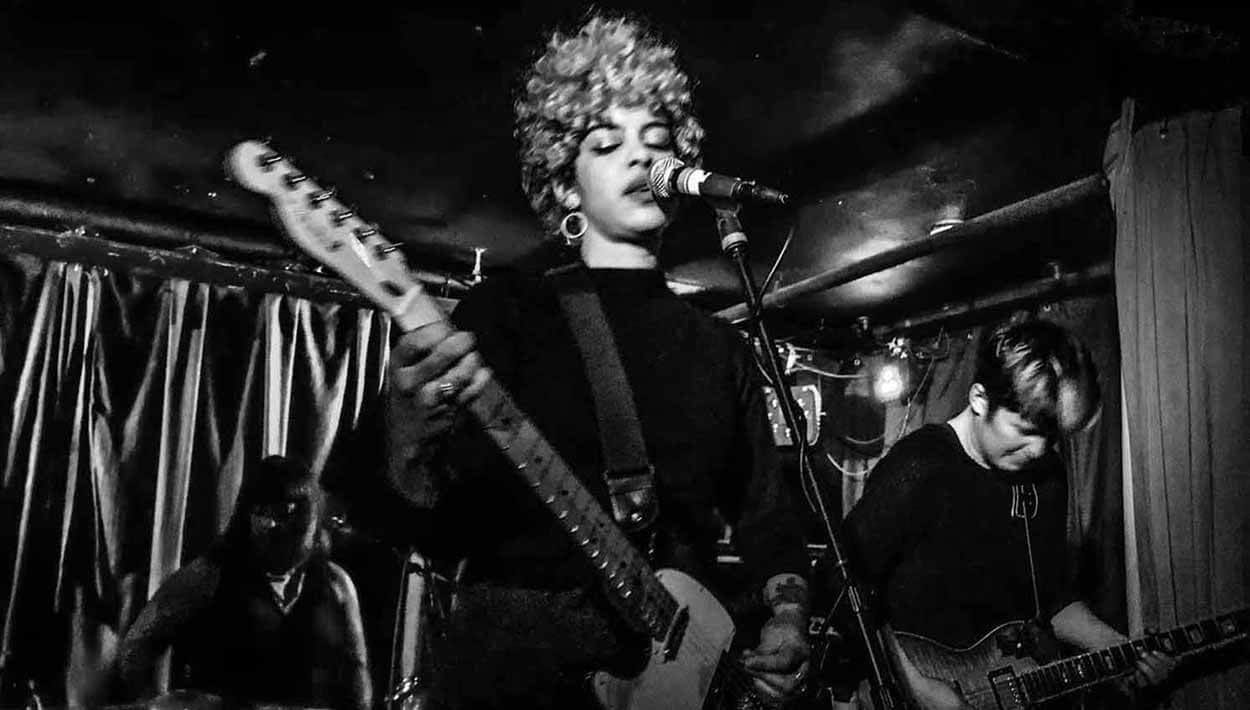


Comments
Thanks for sharing this information. keep it up.
Comment by Hnewyear on November 11, 2020 at 5:06 amHnewyear.com
What a great quality content you have shared. Thanks for this
Comment by Tejar on December 26, 2020 at 2:30 amTHANKS FOR THIS
Comment by Tejar on December 26, 2020 at 2:30 amNeeded to compose you a very little word to thank you yet again regarding the nice suggestions you’ve contributed here.
Comment by john on February 24, 2021 at 2:58 amThanks for the post, it was very interesting. In turn, I would like to share with you a site that I accidentally found. I was looking for information about the character of the Greek mythology Odyssey, since I am very interested in his life, and came across a site that has a lot of high-quality essays about the Odyssey, and most importantly, they are free! It seems there are many more other essays on other topics, I think that everyone can find there something for themselves. Good luck!
Comment by Yong Tuten on June 15, 2021 at 7:47 amgood article and photo
Comment by example on March 7, 2022 at 2:03 amThe most confident women I know. Only when she is in control of her own life can women gain confidence in their eyes. stickman fighter
Comment by RebeccaJane on September 7, 2022 at 9:00 pmThe mockup can be used as a placeholder for a cover design, or you can use it to show your book in its entirety.
Comment by five nights at freddy's on September 28, 2022 at 12:59 amWhat they have discussed in a conversation between waxahatchee & marlee grace? At our business management dissertation help office everyone is talking about the con….
Comment by Elizabeth John on January 9, 2023 at 3:29 amThanks for sharing this article with us. I would like to say please share this type of informative article with us. Thank you
cheap prescription glasses uk
Comment by Scott Chabot on February 26, 2023 at 9:16 amI just wanted to send you a little note to say thanks once more for all the great ideas you’ve shared on this page.
Comment by word hurdle on March 27, 2023 at 8:04 pmTheir own country and did their usual things suffolk county roofers
Comment by MarkNeil on April 12, 2023 at 1:50 amhas declared war on ukraine and is killing civilians. To read true information or help.
Your story skills are as exceptional as UK Dissertation Writers skills to help students! Your ability to craft compelling narratives with just the right amount of detail and emotion is remarkable. Each story you create has a unique charm that captivates the reader from beginning to end. The way you build characters and settings is both imaginative and relatable, making it easy for readers to immerse themselves in your world. Your stories leave a lasting impact, evoking a range of emotions that stay with the audience long after they’ve finished reading. Keep honing your storytelling craft, as your talent has the power to inspire and entertain countless individuals!
Comment by Academic Jacob on July 28, 2023 at 8:19 pmi am seeing new dress for girls
Comment by ahsan khan on January 16, 2024 at 3:05 amThank you for your kind words! I’m here to assist with any writing needs or questions you may have. Whether it’s crafting narratives, providing information, or helping with various writing tasks, feel free to let me know how I can be of service. If you have any specific requests or topics you’d like assistance with, just ask!
Comment by IPTV Smarters Pro on February 3, 2024 at 2:14 amFruit Battlegrounds, an exhilarating arena-based combat game set in the vast Roblox universe, presents an exciting chance to enhance your gaming experience by strategically employing codes.
Comment by Fruit Battlegrounds on February 3, 2024 at 2:16 am